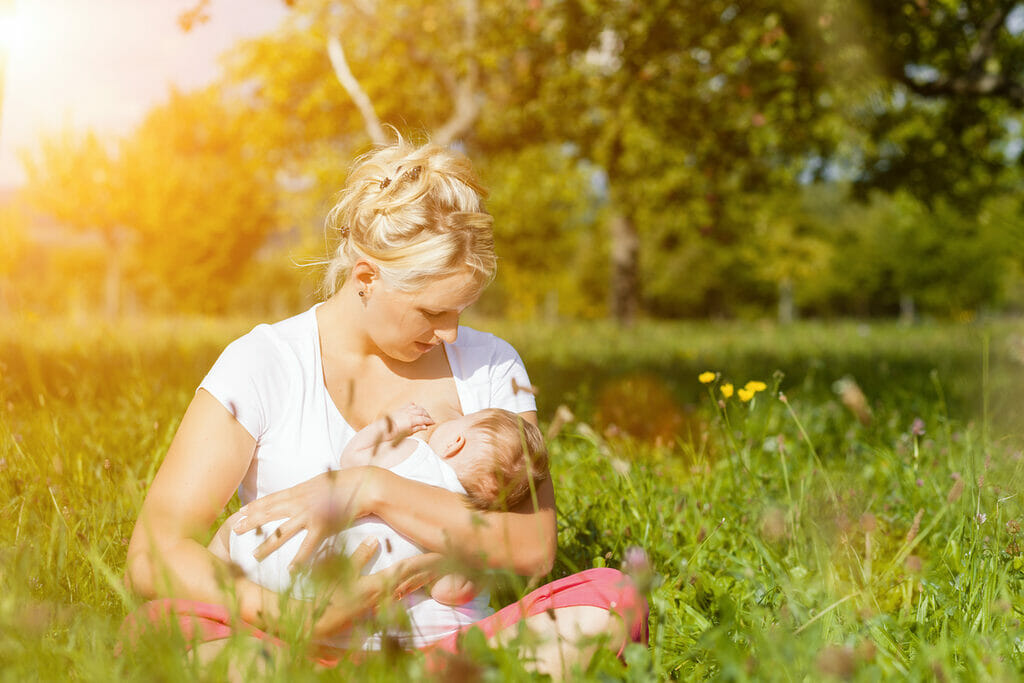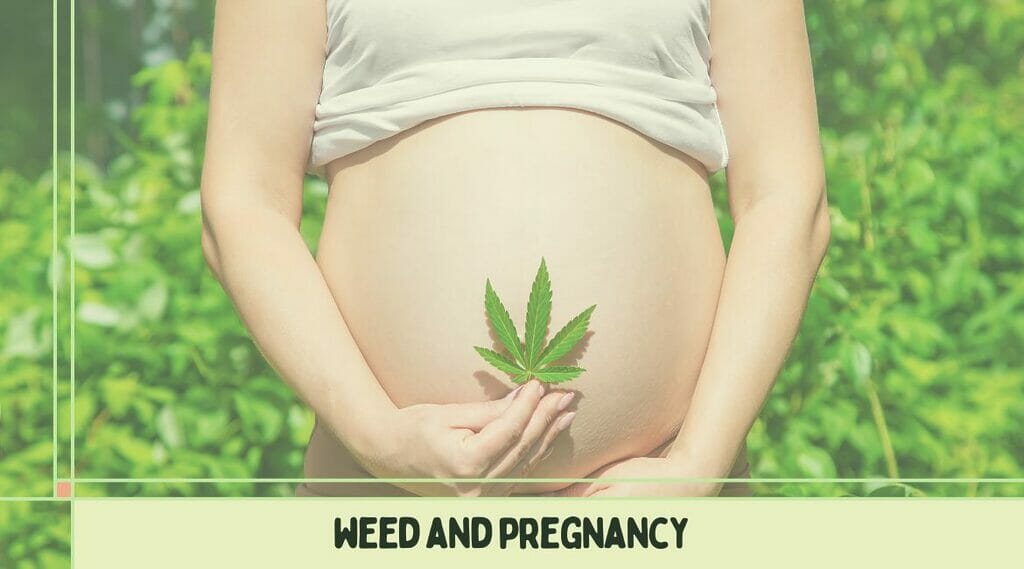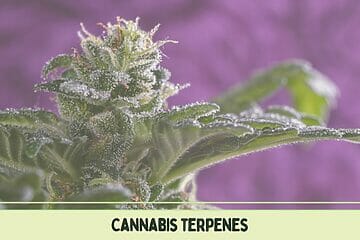Weed and pregnancy together have an image problem. To some people, it conjures up images of young hippies sitting around in a smoky haze indulging in their favorite activity: getting high. And while that is true for some users, the reality is significantly more complex.
Today, as marijuana becomes increasingly legal and socially accepted, questions over its potential risks during pregnancy become ever more important. With this blog post, we aim to explore what kind of effects weed can have on unborn babies if used during or before pregnancy and what solutions are available for pregnant women who wish to keep their babies safe from any possible negative impact of the drug. Let’s dig deeper into the facts!
Table of Contents
Cannabis and Pregnancy: The Basics
Cannabis is a plant that contains over 100 active compounds, including CBD and THC. THC is the compound that’s responsible for the plant’s psychoactive effects. CBD, on the other hand, is non-psychoactive.
Medical marijuana is legal in 33 states, and recreational marijuana is legal in 10 states. Despite its widespread availability, there’s still a lot we don’t know about the effects of cannabis on pregnant women and their babies.
Here’s what we do know: THC can cross the placenta, which means it can expose your developing baby to its psychoactive effects.
Myths About Weed and Pregnancy and the Facts Explained
1. Weed can help with morning sickness
Weed can help with morning sickness, as it can help to relieve nausea and vomiting. Additionally, weed can help to increase appetite, which can be helpful for pregnant women who are struggling to eat enough.

2. Weed can help with anxiety and depression
Weed can also help with anxiety and depression, two common mental health issues that can occur during pregnancy. Additionally, weed can help to improve sleep, which can be beneficial for pregnant women who are struggling to get enough rest.
3. Weed does not increase the risk of miscarriage.
Nearly twenty percent of pregnancies end in miscarriage, and there is still a lot that is not fully understood about why this happens. Researchers have looked into many potential risk factors for miscarriages, including substance use. There have been mixed results when it comes to the impact of marijuana on pregnancies. Some studies suggest that smoking weed during pregnancy can increase the risk of miscarriage, while others do not indicate any connection between marijuana use and miscarriage. More research is needed to determine whether or not smoking weed truly poses a health risk to pregnant women and their developing babies.
5. Weed is not a harmful substance
Weed can be a harmful substance and the risks below:
Risks of Marijuana Use While Pregnant
1. Increased risk of preterm labor
One of the risks of using marijuana while pregnant is that it can increase the risk of preterm labor. Preterm labor is when labor begins before 37 weeks of pregnancy. Marijuana use has been linked to an increased risk of preterm labor, as it can cause the muscles of the uterus to contract.
2. Increased risk of stillbirth
Another risk of using marijuana while pregnant is that it can increase the risk of stillbirth. Stillbirth is when a baby dies in the womb after 20 weeks of pregnancy. Marijuana use has been linked to an increased risk of stillbirth, as it can interfere with the development of the placenta.
3. Increased risk of birth defects
Using marijuana while pregnant can also increase the risk of birth defects. Birth defects are abnormalities that occur during pregnancy that can cause physical or mental problems for the baby. Marijuana use has been linked to an increased risk of certain birth defects, such as heart defects and neural tube defects.
4. Impaired brain development
Marijuana use during pregnancy can also impair brain development in the fetus. Cannabis use has been linked to an increased risk of cognitive problems and lower IQ scores in children. Additionally, marijuana use during pregnancy has been linked to an increased risk of attention deficit hyperactivity disorder (ADHD) in children.
5. Lower birth weight
Another potential effect of using marijuana while pregnant is that it can lead to babies being born with a lower birth weight. Birth weight is the weight of a baby at birth, and low birth weight can increase the risk of health problems in babies. Cannabis use during pregnancy has been linked to an increased risk of low birth weight babies.
6. Difficulty bonding with baby
Marijuana use during pregnancy can also make it difficult for mothers to bond with their babies after they are born. Cannabis use has been linked to problems with attachment and bonding in animals, and it is thought that this may also be true for humans. Additionally, marijuana use during pregnancy has been linked to an increased risk of postpartum depression, which can further impede bonding between mother and child.
Using Weed While Breastfeeding

This can be an emotional and daunting process, as it means throwing away the precious liquid gold that so many people work hard trying to make. On top of this, many mothers who choose to go this route must carefully consider if their personal or professional activities could be impacted by a positive drug test result. Ultimately, smoking weed is not safe to use while breastfeeding, as it will pass through into breast milk and harm the baby and no one wants to risk unwittingly subjecting an infant to any unknown health repercussions from cannabis use while breastfeeding – whether it’s thought of as worth it or not.
Addiction of the Child
Using marijuana during pregnancy can be a cause of great concern as it has been linked to addiction in the child. Research on the subject shows that THC, a chemical found in cannabis, contained in the mother’s body may stay in the child’s system after birth. This exposure may increase the chances of a child becoming hooked on substances such as marijuana later in life due to its psychoactive effects that activate neural pathways in the brain. Similarly, long-term use of drugs such as THC by a pregnant woman makes her child more sensitive to their effects, leading to an increased risk of drug misuse behavior. Despite this correlation being highlighted by multiple studies, there is currently no scientific evidence giving cause for alarm over whether using weed during pregnancy will lead to addiction for the child later in life.
Symptoms of Weed Withdrawal in Newborns
In recent years, more and more newborn babies have been experiencing symptoms of weed withdrawal. It is thought that this is due to increasing numbers of pregnant mothers smoking marijuana while pregnant. Common symptoms in newborns can include excessive agitation, tremors, high-pitched crying, and extreme sleep disturbances. Babies with marijuana dependency may also experience abnormal movements, stiffening of their muscles, hyperactivity, and even seizures. Thankfully, these symptoms usually do not last long and with early intervention, many newborns are able to bounce back quickly and continue healthy development.
CBD for Pregnant Women
CBD, on the other hand, is thought to be relatively safe during pregnancy. Some studies suggest that it could even help treat morning sickness or pain relief. However, more research is needed to confirm these potential benefits.
The Bottom Line
If you’re pregnant or thinking about becoming pregnant, it’s best to avoid using cannabis entirely. If you do use cannabis during pregnancy, be sure to talk to your doctor first so they can help you weigh the risks and benefits.
Right now, the risks seem to outweigh the potential benefits for pregnant women. So until we have more conclusive evidence, it’s safest to err on the side of caution and avoid using cannabis during pregnancy altogether.
Conclusion
Pregnancy is a time when many women are extra careful about what they put into their bodies. And rightly so! What you eat and drink during pregnancy can have a big impact on your baby’s health. So it makes sense that you might be wondering about the safety of weed during pregnancy especially given its increasing availability thanks to legalization efforts across the country. Unfortunately, there’s still a lot we don’t know about how cannabis affects pregnant women and their babies. What we do know suggests that it’s best to avoid using cannabis during pregnancy entirely. So until we have more conclusive evidence one way or another, it’s safest to play it safe and say no to weed while you’re expecting.



